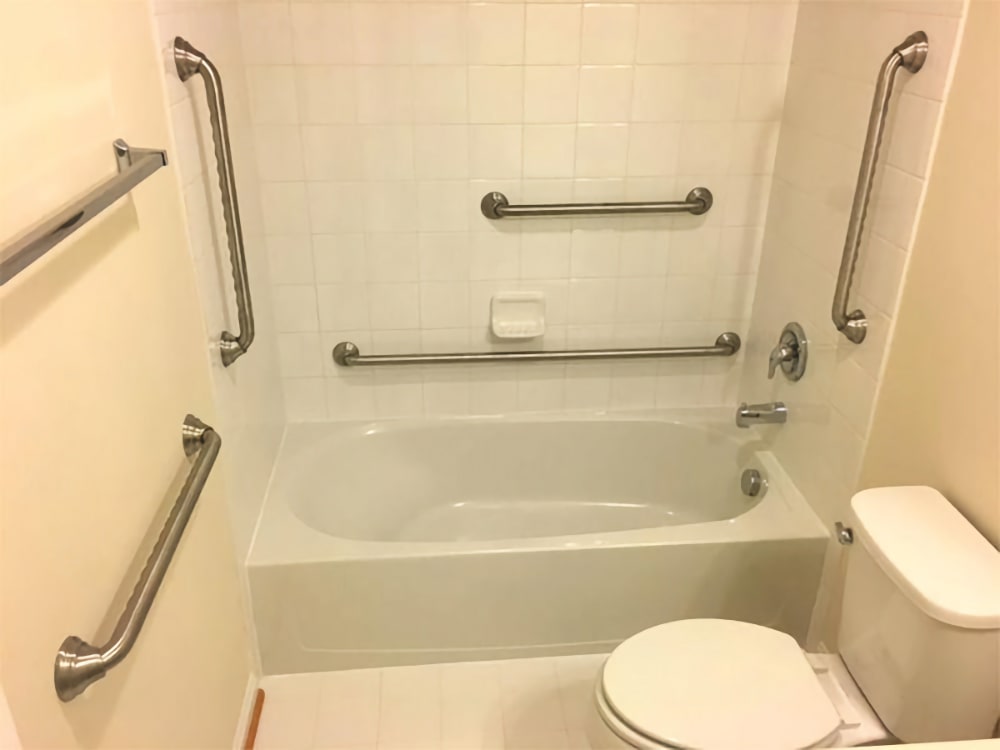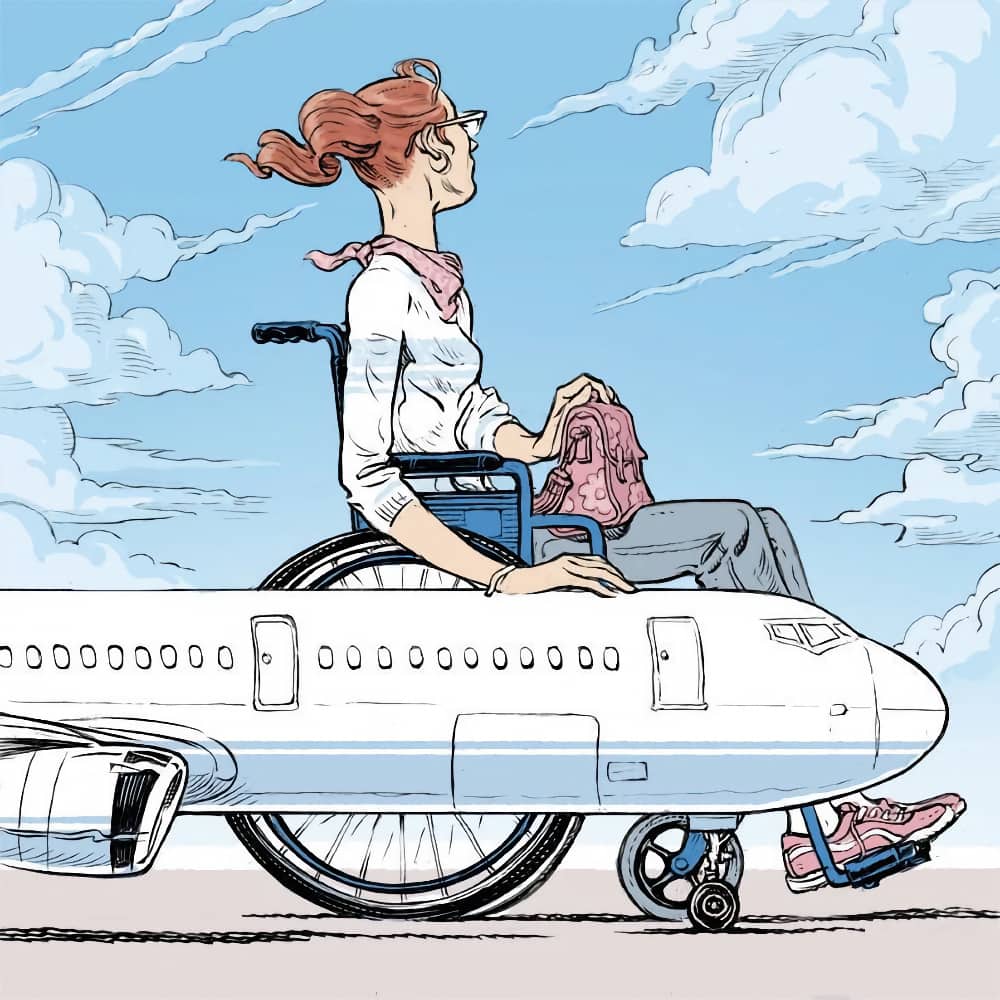Your basket is currently empty!
Top Tips When Travelling With A Disability
For many of us, travelling with a disability can simultaneously be one of the most liberating and daunting of undertakings. Whether driving a couple of hours for a city break or flying halfway across the world to embrace a different culture, a change of scenery and a break from normality can act as the perfect palette cleanser. However, it also has to come with a lot of prudent planning beforehand.
As a wheelchair user who has travelled both at home and abroad countless times post-injury, I still get nervous in the days leading up to it. There are so many extra details to take into account both before leaving and after arriving, not to mention on the journey itself. Below is a list of top travel tips and video clips for wheelchair users and those of us with disabilities. Our aim is to ensure you leave your worries behind and make the most of your time away!
Carry Out A Destination Investigation
Once you have an idea of where you want to go, do a deep dive into it. A few quick Google searches of things like, “disabled facilities in [destination]” and “[destination] wheelchair accessibility”, should start giving you an idea of how feasible it is and what to expect when you’re there. When booking accommodation, look for a detailed description and photos of what they constitute as “accessible”. Don’t be afraid to contact them directly, mention your specific needs and ascertain whether their facilities meet your requirements. You certainly don’t want to arrive at your accommodation after a long journey and find, rather than the wet room you were expecting, a bath with a bunch of grab rails fixed to the wall!
Make Companies Aware of The Chair
This may seem obvious to more seasoned travellers but it needs to be at the forefront of your mind. However you are travelling, always let the company know you are a wheelchair user or have other mobility issues. This can usually be done online at the time of booking. Sometimes it can require an additional phone call or form to be filled in. If you have a power chair or battery-powered wheels then make sure the company (especially when flying) know and have acknowledged this in advance. As discriminatory as this feels, you essentially have to cover your back and make sure there is no way they can stop you from travelling. The last thing you want is to find that the company haven’t adequately prepared for you to travel.
Ensure You’re Insured When Travelling with a Disability
Although it may cost more to insure yourself when travelling with a disability, it is something that you simply cannot risk going without. Disability related treatment when abroad can run into tens, if not hundreds, of thousands of pounds, so paying that little bit extra for peace of mind is worth every penny. Also, apply for a GHIC card when travelling Europe. They’re completely free and, as outlined below, can save you a ton of hassle when away…
Use Your Head When Packing Your Hand Luggage
Medical supplies are a lot like underwear; the longer you’re away for, the more you’ll need! The big difference being that, if you lose your underwear it’s an inconvenience, but if you lose your medical supplies it’s a disaster. That is why, every time I travel abroad, I make sure to carefully split up my medication, catheters and any other essentials I can’t go more than a day without. They take up a surprising amount of room, so the vast majority still go in my hold luggage. However, I always make sure to pack at least a few days’ worth of supplies in my hand luggage. That way, if you land in Costa Brava but your suitcase lands in Costa Rica, you’ll have time to sort things out and won’t be immediately looking at rapid return flights.
Print Out Those Pertinent Papers
Technology can be great for storing all your documents in one place. However, all it takes is a dead battery or a system crash, and suddenly all your files are instantly inaccessible. Maxwell’s top tip is to have backup copies of all medical, travel and other vital documents printed out beforehand. This gives you peace of mind and ensures you have them on hand whenever required.
Keep Everything Important Easily Accessible
Storing your passport and tickets in your rucksack on the back of your chair always seems like the natural choice. However, not only does this make it easier for pickpockets to access, but by the 4th or 5th time you’ve been asked to present your boarding pass, your rucksack will have spent more time on your knee than on your back! Having a front-loading hold-all for these items means that you can just dip in and out whenever necessary; keeping them safe and easily accessible. Rob swears by this and uses a bum bag when he travels…
Snap It Before They Stash It
Baggage handlers aren’t exactly known for being particularly delicate with people’s luggage. This includes wheelchairs and other mobility devices we rely on. Horror stories about them arriving at destinations damaged or broken are becoming increasingly common. That is why it is essential you cover yourself, and your chair, before surrendering it to the airline. Rob’s top tip is to take a time-stamped photo of your chair at the airport. That way, if you get it back damaged, then you have proof when making a claim.
Protection and Hydration
A double-header to finish on, this seems fairly obvious but still bears repeating. Just because you may not be able to feel every part of your body, doesn’t mean you can forget about protecting those areas from sunburn. Besides the more sinister, long-term repercussions, getting sunburnt can lead to increased spasms, swelling, blisters and open sores. Not only can these all takes a long time to subside or heal, but they can also trigger autonomic dysreflexia and an urgent trip to the hospital. On top of applying sunscreen, it is also vital to keep yourself hydrated when out in the sun. This is especially important if your injury level prohibits you from sweating and cooling yourself down. My top tip when abroad is to ritualistically apply sunscreen and grab a bottle of water before venturing out. After all, sunstroke ain’t no joke folks!
There we have it, eight top tips to take into account when travelling. Hopefully these can help ensure your holiday is everything you want it to be and more! So safe travels and let us know if there are any important tips you have that aren’t on this list…
Gareth Herridge


